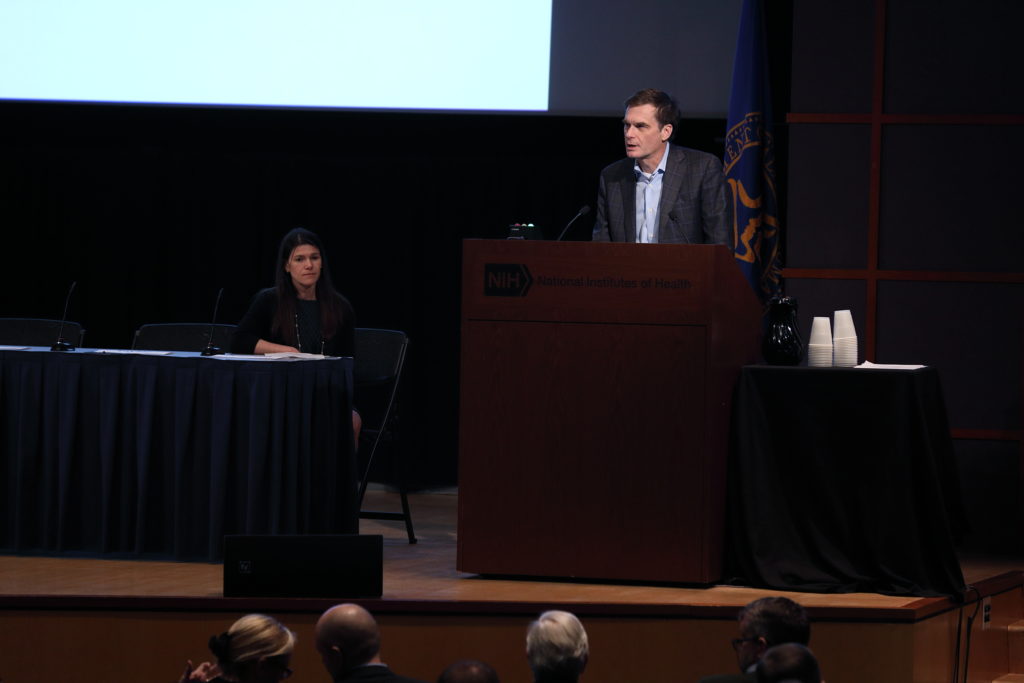
By Janissa Delzo
Penn Memory Center (PMC) Co-Director Jason Karlawish, MD, and PMC Scholar Cara Fallon, PhD, MPH, presented at the 2019 Alzheimer’s Disease-Related Dementias (ADRD) Summit.
The duo gave an 11-minute talk titled, “Stigma: Considerations of Ethics and History.” Karlawish kicked off the conversation by informing the audience of their goal: “to help understand how stigma is embodied in nomenclature.”
He went on to detail that stigma is “both a mark and a process” and has three types: self-stigma (internalized stigma), public stigma (externalized/enacted stigma), and spillover stigma (stigma by association). He also discussed the ethical implications of stigma.
Fallon, a historian, then took the mic and educated the audience about the history of terms used for intellectual and development disabilities in the U.S.
Karlawish and Fallon acknowledge that a change in words alone will not end stigma. Rather, beliefs and attitudes need to change. The language will “both lead and follow,” he said.
To view a video of the first day of the summit, click here. Karlawish and Fallon’s presentation begins at 6:31:37.
The ADRD Summit took place March 14-15, 2019 at the Natcher Auditorium on the National Institutes of Health campus in Bethesda, Maryland and was sponsored by the National Institute of Neurological Disorders and Stroke.